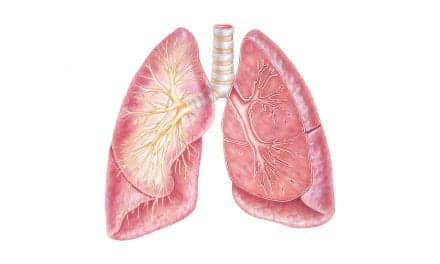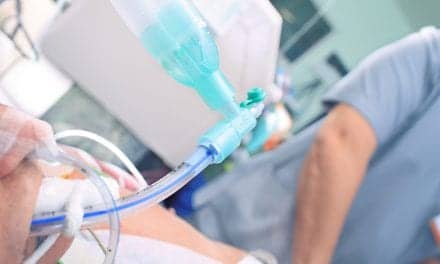A new study finds that in patients with sleep apnea perioperative pulmonary complications after orthopedic and general surgery are significantly more frequent versus matched samples without sleep apnea. The findings, published in the journal Anesthesia & Analgesia, showed that sleep apnea increased the risk of perioperative tracheal intubation and mechanical ventilation by 5-fold after orthopedic surgery and doubled the risk after general surgical procedures.
The current study of data from the National Inpatient Sample database was designed to compare perioperative pulmonary outcomes in patients with sleep apnea versus matched control participants. The study included 3,441,262 general surgery entries and 2,610,441 orthopedic surgery entries collected between 1998 and 2007. Sleep apnea was diagnosed at a frequency of 2.52% and 1.40% for the two surgery types respectively.
Patients with sleep apnea were significantly more likely to experience perioperative complications after both orthopedic and general surgical procedures, with odds ratios (ORs) for aspiration pneumonia of 1.41 (95%CI, 1.35-1.47) and 1.37 (95%CI, 1.33-1.41), respectively.
For adult respiratory distress syndrome (ARDS), the ORs were 2.39 (95%CI, 2.28-2.51) and 1.58 (95%CI, 1.54-1.62), respectively. For pulmonary embolism, the ORs were 1.22 (95%CI, 1.15-1.29) and 0.90 (95%CI, 0.84-0.97), respectively; and for intubation/mechanical ventilation, the ORs were 5.20 (95%CI, 5.05-5.37) and 1.95 (95%CI, 1.91-1.98), respectively.
Furthermore, with the exception of pulmonary embolism, which was more frequent in patients with sleep apnea who underwent orthopedic procedures (0.51% versus 0.42%; p=0.0038) but not general surgical procedures (0.45% versus 0.49%; p=0.22), perioperative complications were significantly more common among patients with sleep apnea for both general and orthopedic surgery versus matched control participants (aspiration pneumonia: 1.18% versus 0.84% and 2.79% versus 2.05%, respectively; ARDS: 1.06% versus 0.45% and 3.79% versus 2.44%, respectively; and intubation/mechanical ventilation: 3.99% versus 0.79% and 10.8% versus 5.94%, respectively; all p<0.0001).
The researchers concluded that the risk posed by sleep apnea for a number of pulmonary complications after orthopedic and general surgical procedures, warrants an increase in the utilization of resources, including intensive monitoring and development of strategies to prevent and treat these events.
Source: Anesthesia & Analgesia








